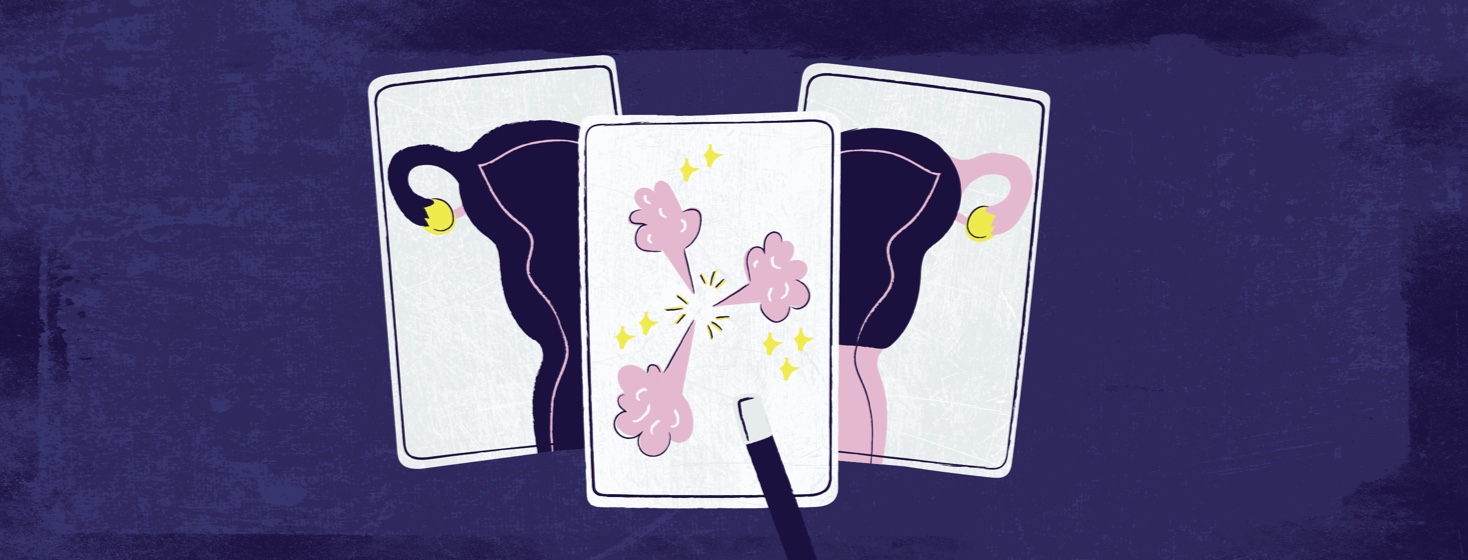A Hysterectomy Is Still Not The Cure-All Solution We Need
Some days, I am OK with having endometriosis. I accept this disease as a way of life, just a slightly different one. This is better for my mental health than fighting it, or getting frustrated. Yet, this acceptance dissolves into thin air whenever a painful flare-up kicks me to the floor. That’s when I wish for all sorts of things: drugs so strong they don’t even exist, or for my uterus to happily dissolve into glitter and fairy dust. Sometimes I even wish for, wait for it... a cure.
And it is during those moments, when I'm a drooling mess of unwashed hair, a pile of pity and intense pain, that I consider the procedure that is in the mind of almost every endo-sufferer: a hysterectomy.
What does a hysterectomy involve?
Currently, there are several types of hysterectomy. Most endometriosis patients choose a total hysterectomy, meaning they the womb and cervix removed, keeping their ovaries. This is done to prevent them from going into menopause. Some patients, however, will have the fallopian and/or the ovaries removed.
Others will opt for a radical hysterectomy. This procedure takes away everything, including the lymph nodes, parts of the vagina, and fatty tissue. These patients will generally go into menopause and will normally take hormonal replacement therapy.
Yet, when I am in that much pain that a hysterectomy sort of sounds OK to me, I always reming myself of two very big points.
After a hysterectomy, pregnancies will be off the table
This turns any hysterectomy into an emotionally-charged event. Even when the patient is OK with that outcome, and all they seek is an end to their suffering, many doctors will refuse this procedure. If a patient is considered to be "too young", many doctors will not be willing to go ahead with a hysterectomy. For patients who do want children, the decision can be heartbreaking.
To me, this feels like an unfair choice for anyone, whether they want to become pregnant or not.
The other point that always pops into my head is the one that tends to bring me back to reality faster than you can say fallopian tubes...
A hysterectomy won’t cure endometriosis
Let me preface this by strongly recognizing that there are many success stories. There are lots of women who have experienced a huge improvement in their health after a hysterectomy. For an endometriosis patient, long-term relief is priceless.
Sadly, a lot of these positive changes can also be temporary, with no guarantee that symptoms won't return. Additionally, patients may be symptom-free, yet that does not mean that the disease has gone away. Furthermore, a hysterectomy is a big procedure, leaving its patients at risk of developing painful scar tissue.
Currently, I am on progesterone, which I personally don’t consider a form of treatment, but a way to keep the disease from severely disrupting my life. Having no periods means I don’t lose 12 days of my life every month. But this is a temporary solution. A hysterectomy may still be in the cards for me.
It doesn’t feel me with hope, it is a possibility that feels like admitting there is nothing better.
Which is why I ask, why isn’t there something better for the millions of us living with this disease? Why are we trapped between what feels like a shrug (hormonal treatments) and what feels like the most radical step, a jump with no safety net (hysterectomies)?
Surely, endometriosis patients deserve better.

Join the conversation